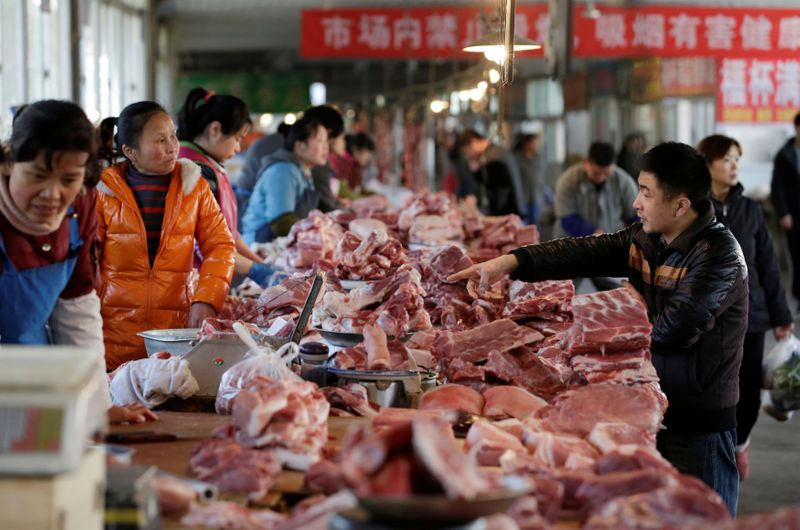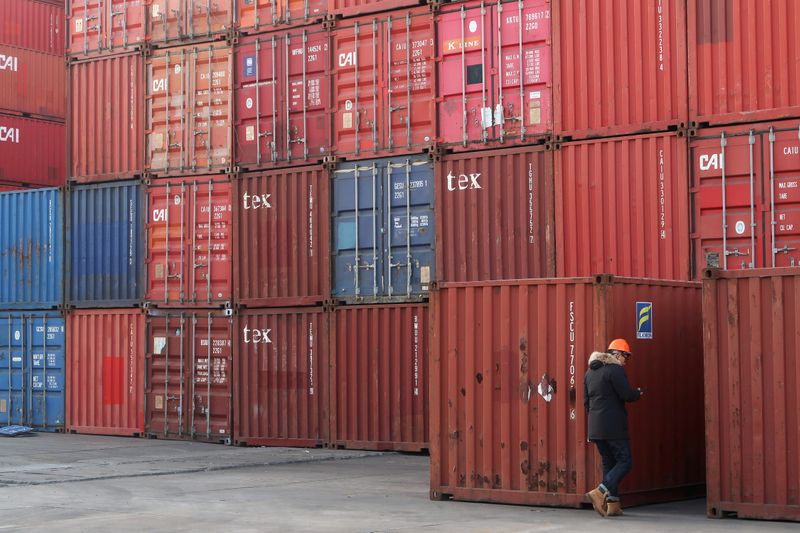By Dominique Patton and Hallie Gu
BEIJING (Reuters) - China's meat importers fear clearing delays and a hit to demand after one of the country's major ports began requiring coronavirus tests for all meat and seafood containers to prevent contamination.
Tianjin on the northern coast, the primary port for Beijing, started testing batches from every arriving container on Monday, two importers and an official briefed on the matter said.
Tianjin port and customs officials did not respond to calls seeking comments.
The government of Shanghai, another major port for meat imports, said on Wednesday its customs would strengthen inspections of imported meat, seafood and fresh fruit and vegetables.
It did not specify if it would also carry out coronavirus tests.
China is the world's top meat importer and many meat exporting nations, including the United States and Brazil, have seen thousands of cases of COVID-19, the disease caused by the novel coronavirus, among meat plant workers.
Authorities usually conduct food safety tests on a random sample of about 10% of frozen meat shipments, Grace Gao, manager at Dalian-based meat importer Goldrich International, said.
Now, every container in Tianjin is opened and boxes pulled out for coronavirus tests, she said.
The move by Tianjin, 110 km (70 miles) from Beijing, follows a fresh coronavirus outbreak linked to a wholesale food market.
"Each batch of beef, or all beef produced on the same date, must be tested for the virus," a manager at Haiyunda Trading, who only gave his surname Fu, said.
Any meat in cold storage that arrived after March 1 must also be sealed and tested before it can leave the port, Fu said.
Gao, who has shipments arriving this week in Guangzhou, Tianjin and Shanghai, is worried the tests will cause a backlog, particularly given the large volume of pork that has arrived in China in recent weeks.
The United States Meat Export Federation said so far it had seen minimal disruption of U.S. shipments.
The U.S. Food and Drug Administration was aware China would begin testing seafood and meat, spokesman Peter Cassell told Reuters.
But he said the regulator did not know of any cases of COVID-19 linked to these foods or of any transmission from food or packaging.
"The FDA is not currently aware of any evidence to suggest that food produced in the United States or imported from countries affected by COVID-19 can transmit this respiratory virus," he said.
Importers fear other ports may follow Tianjin and Gao said any positive test would destroy consumer demand.
Fu said he was trying to import from regions and countries where COVID-19 is less severe, such as northern Europe and Kazakhstan.

"If test results for products from certain countries or factories turn out to be problematic, imports from those places could be suspended," he said.
